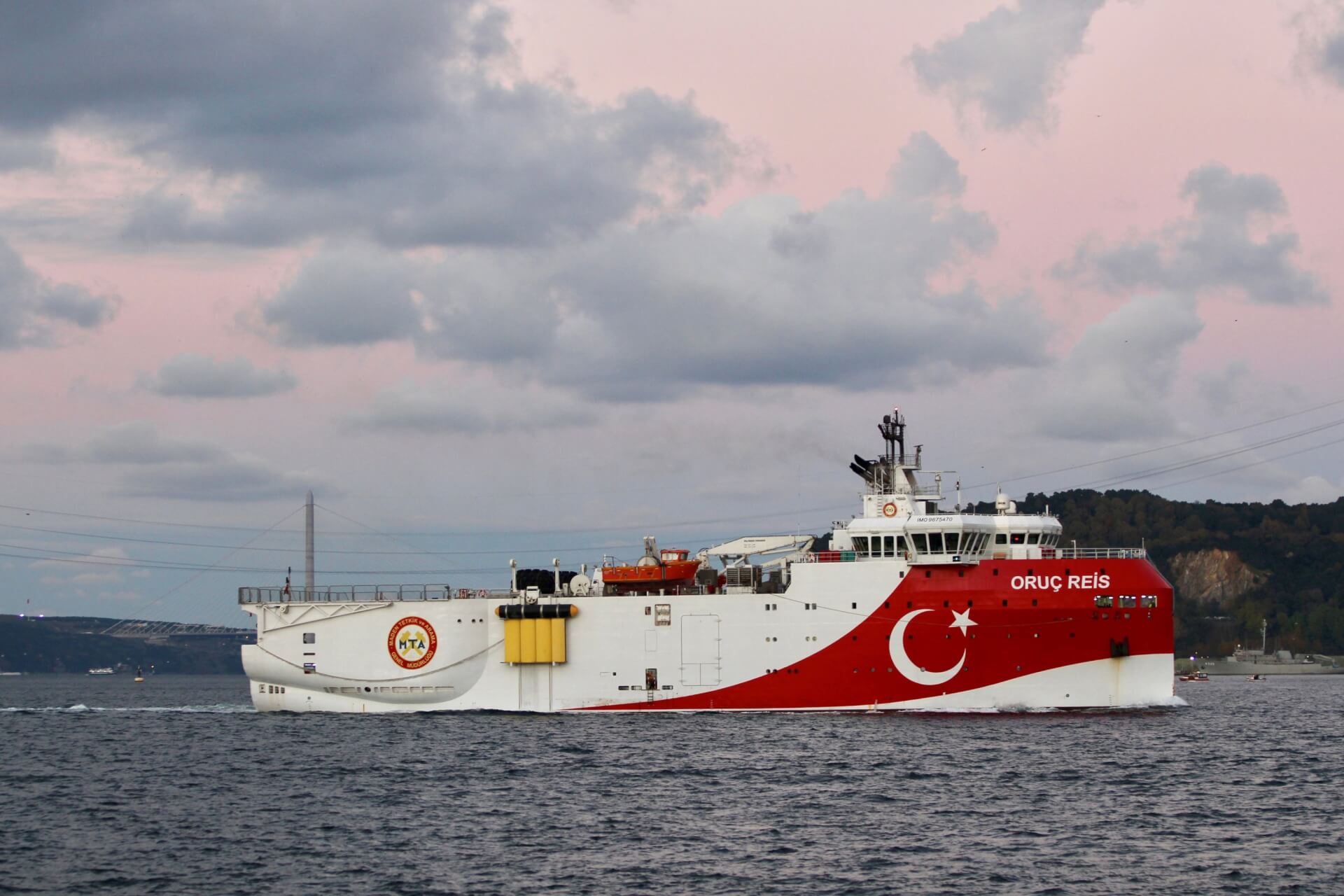Tensions between NATO neighbours Greece and Turkey have once again risen over the former’s continued objections to Ankara’s Turkey hydrocarbon research mission in the Eastern Mediterranean, which has now been extended until November 14.
The Turkish navy, which was meant to have wrapped up its operations in the area by November 4, delivered a notification about the extension of the mission through the international maritime alert system NAVTEX, intimating that the Oruç Reis seismic vessel would now continue its seismic investigations until November 14.
Oruç Reis is a hydrocarbon research vessel owned by the General Directorate of Mineral Research And Exploration (MTA) in Ankara. The vessel has been designed for detailed mapping and imaging of the seafloor for hydrographic and oceanographic studies. The MTA Oruç Reis research mission was launched in the Eastern Mediterranean after a controversial deal was signed between Greece and Egypt to conduct activities in an area claimed within Turkey’s continental shelf.
Faith Donmez, the Energy Minister of Turkey, tweeted that the aim of the research is to “take the X-ray” of the Mediterranean seabed which could provide “diplomacy a chance” in future negotiations. The vessel’s examination began on August 10 and was anticipated to last until September 1. At first, the period was extended until September 12, then September 25, and then a new notice was filled with an extension until November 4. However, the research has now been extended until November 14. Turkey’s intentions of uninterrupted exploration were clear since the beginning, as Donmez tweeted, “Turkey’s energy independence will continue interrupted.”
MTA Oruç Reis Sismik Araştırma Gemimiz, Akdeniz’deki yeni görevi için Antalya’dan demir alarak, çalışma yapacağı alana ulaştı.
— Fatih Dönmez (@fatih_donmez) August 10, 2020
Türkiye’nin enerji bağımsızlığı için Akdeniz’de ve Karadeniz’deki çalışmalarımız aralıksız devam edecek.
83 milyon arkanda Oruç Reis.
Rast gele.🚢🇹🇷 pic.twitter.com/VKfFGgXSxm
Since the beginning of the research mission, Greek authorities have raised serious concerns. In fact, the Greek Ministry of Foreign Affairs dismissed Oruç Reis’s mission as an ‘illegal mission’ which imposes a “direct threat to peace and security”. The most recent derailment has only added more fuel to the feud between the two NATO allies. Greece advocates that Turkey has broken international laws by its continuous presence in Greek Waters and has requested the European Union to push its customs union to punish Turkey’s “imperial fantasies”. To strengthen the Greek claim, two US senators issued a warning to implement economic sanctions on Turkey.
Η νέα παράνομη τουρκική Navtex για παράνομες έρευνες νοτίως του Καστελόριζου στην ελληνική υφαλοκρηπίδα, σε απόσταση 6,5 ν.μ. από ελληνικές ακτές, συνιστά μείζονα κλιμάκωση και ευθεία απειλή κατά της ειρήνης και της ασφάλειας
— Υπουργείο Εξωτερικών (@GreeceMFA) October 12, 2020
Aνακοίνωση ΥΠΕΞ
➡️ https://t.co/QigHUE5bd9
Turkey, however, has hit out such criticisms by labelling them as ‘maximalist claims’. Turkey justifies its response by stating that Greece has no right to interfere as the hydrocarbon vessel is situated 15 km away from its mainland in the eastern Mediterranean on its own continental shelf. Mevlüt Çavusoglu, Turkey’s foreign minister, stated that Greece should withdraw its maximalist claims as they stand contrary to the international law, and made a request for sincere dialogue between the two parties.
Previously, Greece’s efforts to declare an exclusive economic zone based on small islands near Turkish shores have been discouraged. However, the proposals recommended by Greece undermine Turkey’s economic interests. Moreover, the merits of such an idea have been dismissed as Greece already has the longest coastline in the Mediterranean, and thus does not require additional economic advantages in the region.
There was some hope for a resolution to the conflict after a deadly earthquake hit the Aegean Sea; it is estimated that at least 80 Turks have died so far. In response, Greek Prime Minister Kyriakos Mitsotakis offered his condolences for the loss of life and even offered to support Turkey. However, this “earthquake diplomacy” has now been scaled back due to prolongment of the Oruç Reis’ mission in the eastern Mediterranean. Continued tensions between Turkey and Greece indicate a sign of a potential military conflict in the future, particularly if Turkey does not relent in its aggressive posturing.

